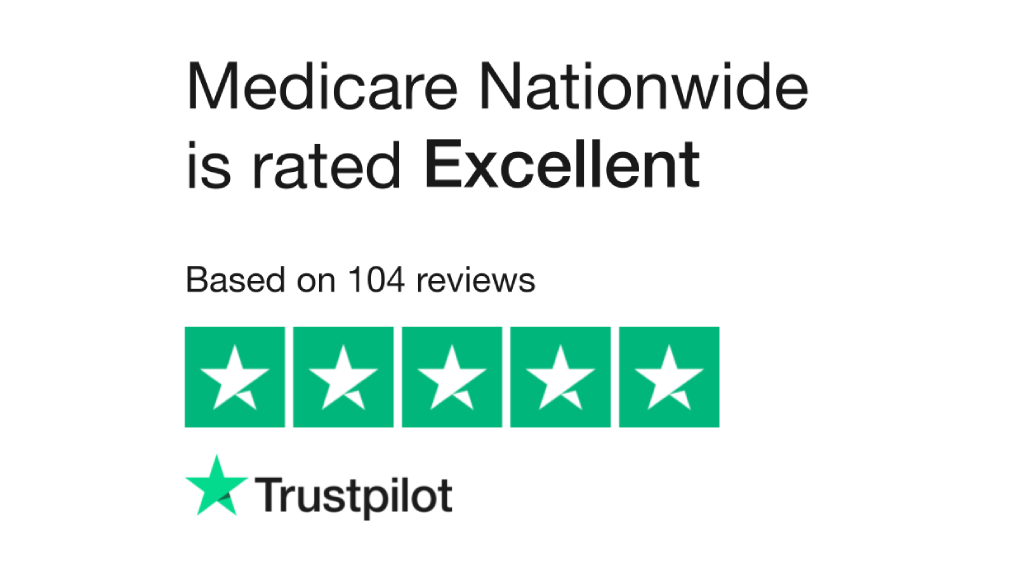Do VA patients need Medicare?
Yes, you can have Medicare and VA benefits, but Medicare and VA benefits do not work together.
Medicare’s Part A and Part B does not pay for any care that you receive at a VA facility.
Here’s the confusing part:
- For Medicare to pay for coverage, you must receive care at a Medicare certified facility that works with Medicare coverage
- For the VA coverage to pay, you must receive care at a VA facility.
VA benefits will also not pay for Medicare out-of-pocket costs such as deductibles, copayments, or coinsurance.
If you choose not to enroll in Medicare and keep your VA coverage, you will not have coverage for any healthcare facility outside of the VA system.
Many Veterans will choose to enroll in Medicare Part A because the premiums are free, but then they will opt-out of Part B because of the monthly premiums.
How do VA benefits and the different parts of Medicare interact?
Enrolling in Medicare Plan
Enrollment in Medicare health insurance is not required if you have VA coverage. However if you do so outside of the initial enrollment period without creditable coverage from an employer, you will face late enrollment periods.
What is creditable coverage? This will apply under different parts of Medicare, so it is important to understand. Creditable coverage is another source of approved insurance coverage through a private carrier. Most often this is an employer or union.
The VA recommends enrollment in Medicare when you become eligible. You will have more coverage choices and an expansion of medical and hospital care along with potential coverage for prescription drug coverage under Part D Medicare.
This appointment is meant to alleviate any concerns and there is no-cost or obligation to make a change.
VA and Medicare Part A
Part A Medicare benefits cover hospitalization. Hospitalization includes emergency room visits and inpatient care in addition to home healthcare, skilled nursing facility care and hospice care.
For anyone who has paid into the Medicare system through an employer during their working years, Part A will be free.
As you’ve seen, Medicare and VA benefits do not overlap. They are dependent on where you receive care.
Even though premiums are covered, there are out-of-pocket expenses you may pay under A. The out-of-pocket under Part A is the deductible. In 2021, the deductible is $1484.
Also, co-insurance may apply depending on the length of a hospital stay in a Medicare approved facility. For days 1-60, there is $0 coinsurance. You will pay the deductible. For days 61-90, there is a $352 co-insurance per day. For days 91 and beyond, there is a $704 co-insurance per day.
VA and Medicare Part B
Part B is medical insurance for your doctor and specialist. It includes preventive healthcare, diagnostics and treatment for ongoing conditions.
Some vets may opt-out of Part B due to the monthly premium costs. However this may be a mistake. If you drop out, you won’t be able to get it back until January of the following year. You may also have a penalty to reinstate the coverage.
The only way you can opt-out of B without penalty is if you have creditable coverage. This would be through an employer. VA benefits are not considered creditable for Part B.
Even though they do not overlap, you can use both Medicare and VA benefits for Part B type services. An example of this not covered under Medicare would be annual physical exams. These would be covered under VA benefits as long as you receive the care in a VA facility.
The one thing to watch out for with Part B benefits is the out-of-pocket costs. These will not be covered by your VA benefits.
Under Part B you are subject to an annual deductible. That is a small out-of-pocket expense. The larger expense you should be prepared for is the 20% co-insurance cost for doctor visits or outpatient services if not within a VA facility.
There are ways to cover these out-of-pocket medically-related expenses through either Medicare Advantage or a Medicare Supplement.
VA and Medicare Part C – Medicare Advantage Plan
Medicare Advantage plans or Medicare Part C is a mixture of Parts A and B with a few added benefits, making this part the more premium option. Depending on where you live, you will get coverage for not only what A and B cover but you’d also receive dental, vision and hearing along with fitness memberships.
Advantage benefits are dependent on the network you are eligible for and can be limited and even costly if you go outside of the network. Obviously, this wouldn’t affect coverage in a VA health care facility, but if you choose a Medicare Advantage plan, make sure you understand the network limitations.
VA and Medicare Part D
Medicare Part D, otherwise known as Medicare Prescription Drug coverage, is also only available to those who are enrolled in Part A or Part B. Part D plans are available through private insurance companies. There is a range of medication covered under Part D which include anticancer, antidepressants, anticonvulsive, immunosuppressant, HIV/AIDS and antipsychotic medications. Whether they are name brand or generic depends on what Part D plan you choose.
The one difference between Part D and other parts of Medicare is that the VA benefits are considered creditable coverage for Part D.
This means that you can opt-out of Part D without penalty by using your VA benefits. However since the VA benefits only apply to a specific veteran, dependents and family members do not receive creditable coverage.
The one benefit of having both VA and Part D is that you have the ability to get medicines from non-VA doctors and fill prescriptions at local pharmacies instead of the VA mail-order service.
VA and Medicare Supplement Plans
Because of all the potential out-of-pocket costs, Medicare supplemental health insurance has the ability to cover your out-of-pocket costs.
There are 10 Medicare Supplement plans on the market. Following are the basic plans most customers choose:
Plan A
Plan A is the most basic plan you can purchase. All other plans build off of the coverage offered by Plan A.
Plan A covers Part A Medicare co-insurance, including an extra 365 days of hospital costs.Part B 20% co-insurance is covered, along with three pints of blood and Part A hospice care.
Plan B
Plan B is identical to A except it covers the Part A deductible, which is $1,484 in 2021.
Plan C
Plan C adds coverage for the Part A coinsurance for using a skilled nursing facility, and also covers the Part B deductible. With Plan C, you also have coverage for the medical expense of foreign travel emergency medicine. If you travel out of the country, and many seniors do, this is critical coverage.
Plan D
Plan D modifies Plan C. It includes everything Plan C does except it removes the Part B deductible.
Plan F
Plan F and Plan G are the most comprehensive Medicare Supplements you can buy. Along with the coverages included in Plan C, you also have coverage for Part B excess charges.
Excess charges can be substantial. Under traditional Medicare, doctors are allowed to charge an extra 15% to the patient beyond the portion that Medicare reimburses. Plan F will pick up that extra 15% charge.
Some plans also restrict doctor choice, Plan F allows you to choose any doctor you want. You also don’t need a referral to see a specialist.
One thing to remember about Plan F is that availability is restricted. If you were new to Medicare in 2020, you can not purchase this plan. However, if you have been enrolled in Medicare prior to that date it is available to you.
Plan G
Plan G offers the same coverages as Plan F, EXCEPT it does not cover the Part B deductible. But remember, the Part B deductible is only $148.50 in 2021. The reason people choose this plan is because they can often save more than $200 in premium cost over Plan F. This more than covers the deductible cost.
A High Deductible Plan G was introduced in 2020. Currently, you need to hit a $2,340 deductible before coverage begins with Plan G. The benefit is that premiums are much lower compared to the original Plan G. If you are a healthy senior with few medical expenses, this may be a plan to consider. You may actually save enough in premiums that cover a portion of the deductible.
Our homepage gives a visual side by side guide to the various Medicare Supplement plans. Seeing the plans side by side, can help you grasp the various coverages offered under each plan.
Is Medicare primary or secondary to VA?
You probably know the answer to this one based on the information we’ve given. Yes, you can Medicare and VA, but the coverages don’t overlap and are dependent on where you receive care.
The only time that there could be overlap is if the VA authorizes services in a non-VA hospital. If this happens, the VA may not authorize all of the services in a non-VA hospital. Medicare can pay for the Medicare covered services that the VA didn’t authorize.
VA Benefits Coverage Considerations
VA health coverage benefits aren’t always completely stable and the same for everyone receiving benefits.
Each VA enrollees has different priority levels based on income and whether medical conditions are a result of military service.
Federal funding for VA health care services can drop. If this happens, vets in the lower priority groups may lose VA coverage.
This is why you need a backup plan and should enroll in Medicare alongside your VA coverage. You have broadened coverage by doing so.
Also choosing a way to supplement out-of-pocket costs through a Medicare Advantage plan or Supplement Plan will remove much of the financial burden that does come through out-of-pocket costs.
Here are just a few reasons why veterans may consider enrolling in Medicare and a private Medicare Supplement Insurance Plan:
- You do not live near a VA facility
- You are enrolled in one of the VA lower priority groups, and could potentially lose your benefits
- You retain the option to use local Doctors and Hospitals
This appointment is meant to alleviate any concerns and there is no-cost or obligation to make a change.
Bottom Line
Medicare is essential coverage even if you have VA benefits. You can use Medicare and VA benefits, just not in conjunction with each other. They remain a safety net for your health that broadens your health care.
Also having a way to pay out-of-pocket costs is essential as well.
If you have questions about the way out-of-pocket costs work or just understanding the timetables to enroll in Medicare or Medicare related products, please contact us.
Our agents are experienced with Medicare and can offer you a package of services that fit exactly what you need. There should be no fear of breaking your health care budget, because we represent hundreds of companies and can tailor a plan to work for your needs. Make sure you understand the way your VA health benefits and Medicare benefits work, so you can be confident in managing your health care needs.
Prefer to chat by phone? Give us a call at 1-888-559-0103.

